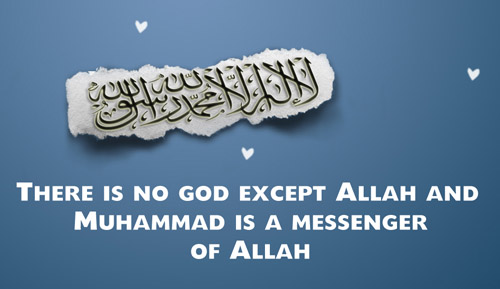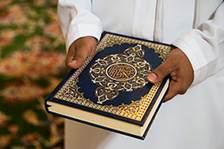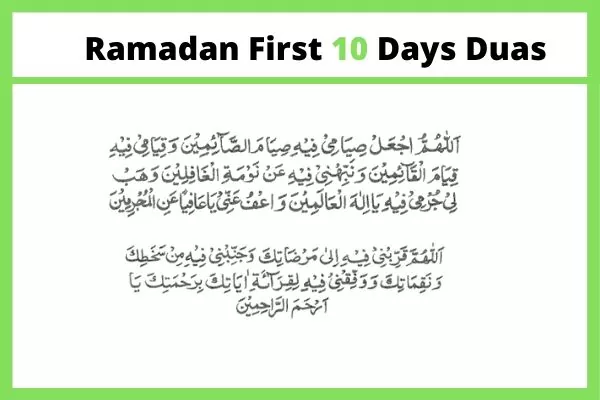Ramadan being the most important religious month in Islam, presents countless opportunities to connect with the almighty Allah. Therefore, it becomes essential to offer appropriate Ramadan dua along with fasting for the whole month from sunrise to sunset. Muslims can take help of prayer guides to perform step-by-step dua for each day of the Ramadan. The purpose of these guides is to properly utilize the month of Ramadan and fetch great rewards and blessings from Allah. The guides assist in maintaining a smooth Ramadan dua routine while getting through the daily activities amidst fasting.
Importance of Ramadan dua

Ramadan is the ninth month according to the Islamic calendar. This month is quite unique for Muslims as the month is known for doing charity, seeking forgiveness, and Allah’s mercy. Ramadan offers a great opportunity for every Muslim to mend their ways and connect spiritually with Allah. In this month, Muslims around the world fast from dawn to dusk making up for the five pillars of Islam. To increase the effects of fasting, Muslims offer Ramadan dua and prayers in a strict schedule.
Ramadan dua for Fasting
Dua before iftar
Given below is the dua for opening fast with iftar:
Iftar dua: Allahumma inni laka sumtu wa bika aamantu wa alayka tawakkaltu wa ala rizq-ika-aftartu
Meaning: O Allah! I fast for You, I trust You, I put my faith in You, and I break the fast with Your sustenance.
One must recite the dua for breaking the fast for making the meal blessed.
Suhoor dua
Sehri ki dua: Wa bisawmi ghadinn nawaiytu min shahri Ramadan
Meaning: I intend to keep this fast for tomorrow in the holy month of Ramadan.
Dua for Laylatul Qadr

The last 10 odd nights of Ramadan is highly rewarding when holy Quran was revealed to Prophet Muhammad (PBUH). Hence, it is important one knows the right dua for these nights.
Laylatul Qadr dua: Allahumma Innaka Aafuwon Tuhibu AlAaffwa FAafu Aanni
Meaning: Oh Allah! You are hihgly forgiving, and you love to forgive people, so please forgive me.
Three Ashras of the Ramadan month
According to Hadith, fasting is not enough for enjoying Allah’s blessings. Attaining control on the amount of sina and praying most of the time is also necessary for forming a spiritual bond with Allah. Ramadan is divided into three Ashras (stages), lasting ten days. The dua recited in every Ashra is for different reasons and benefits. One can recite first Ashra dua for praising the start of Allah’s mercy, second is for seeking forgiveness and the third Ashra duas are for praying to Allah to save an individual from Hellfire.
Ramadan dua for the first Ashra
The first Ashra represents the mercy of Allah which is bestowed in many small ways in this month. Important Dua for first Ashara is as follows:
Rabbi ighfir warham wa anta khayrur raahimeen
Duas to recite during the first Ashra:
Day 1 Ramadan dua and meaning
Allahumaj al siyami fihi siyamasaa imina wa kiyami fihi kiyamal kaa imina wa nabhini fihi an naumatil gafilina wahabli jurmi fihi ya ilahal almina wafu anni ya afian anil mujrimin
Meaning: Allah on this day make my fasts the fasts of those who fast sincerely and my standing up in prayer of those who stand up in prayer. Awaken me from the sleep of the heedless and forgive me my sins. O God of the worlds forgive me, O one who forgives the sinners.
Day 2 Ramadan dua and meaning
Allahuma karibni fihi ila mardatika wajanibni fihi min sakhatikawa nakima tika wa wafikni fihi likiraa ati ayatikabi rehmatika ya arhamar rahimin
Meaning: Allah on this day take me closer towards your pleasure, keep me away from your anger and punishment, grant me the opportunity to recite your verses by your mercy, O the most merciful.
Day 3 Ramadan dua and meaning
Allahumar zukani fihizzih nawat tabiha wabaidnifihi minsafahati watawihi wajaali nafsiban minkuli khairin tunzilu fihi bijudka ya ajwadal ajwadina
Meaning: Allah on this day grant me wisdom and awareness; keep me away from foolishness and pretension, grant me a share in every blessing you send down, by your generosity, or the most generous.
Day 4 Ramadan dua and meaning
Allahumma kauwini fihi alaikamati amrica wa azikuni fihi alawati zikrika wa auzini fihi li adaai shukrika bikaramika wajfazani fihi bihifzika wasitrika ya absaran nazirin
Meaning: Allah on this day, strengthen me in carrying out your commands; let me taste the sweetness of your remembrance, grant me, through your graciousness, that I give thanks to you. Protect me, with your protection and cover, O the most discerning of those who see.
Day 5 Ramadan dua and meaning
Allahuma jualni fihi minal mustagfirina wajalni fihi minibadikas salihinal kanitina wajaalni fihi min auliyaa ikalmukarrabina bira u fatika ya arhamar rahimin
Meaning: Allah, place me among those who seek forgiveness on this day. Place me among your righteous and obedient servants, and place me among your close friends, by your kindness, O most merciful.
Day 6 Ramadan dua and meaning
Allahumma latakhzulni fihi litarrudi masiyatika walatadribni bisiyati nakimatika wazhazini fihi min mujibati sakhatika bimannika waayadika yamuntaha ragbatir ragibin
Meaning: Allah on this day, do not let me Abase myself by incurring your disobedience, and do not strike me with the whip of your punishment, keep me away from the causes of your anger. By your power, O the ultimate, fulfil the wish of those who desire.
Day 7 Ramadan dua and meaning
Allahuma ainna fihi alasiyamihi wakiyamihi wajanibni fihi minhafawatihi wasamihi warzukuni fihi zikraka bidawamihi bitaufikika yahadial mudilina
Meaning: Allah on this day, help me with its fasts and prayers, and keep me away from mistakes and sins of the day, grant me that I remember you and continue through the day, by your assistance, O the Guide of those who stray.
Day 8 Ramadan dua and meaning
Allahumar zukani fihi rahmatal aytami waitamata amiwa ifshaa asalami wasuhbatalkira mibitau lika yamal jal amilina
Meaning: Allah on this day, let me have mercy on the orphans, and feed the hungry, and spread peace, and keep company with the noble-minded, O the shelter of the hopeful.
Day 9 Ramadan dua and meaning
Allahumaj alli fihi nasiban min rahmatikal wasiati wahdin fihi libarahin ikaasa tiatiwakhuz bina siyati ila mardatikal jamiati bama hadatika ya amalal mushtakina
Meaning: Allah on this day, grant me a share from your mercy which is comprehensive, guide me towards your shining proofs, lead me to your all-encompassing pleasure, by your love, O the hope of the desirous.
Day 10 Ramadan dua and meaning
Allahumaj alni fihi minalmutawakilina alayka wajalni fihi minal faizina ladaykawajalni fihi minalmukarabina ilayka bihsan nikaya fayatatalibina
Meaning: Allah on this day make me, among those who rely on you, from those who you consider successful, and place me among those who are near you, by your favor, O goal of the seekers.

Ramadan dua for second Ashra
The second Ashra is significant for seeking Allah’s mercy and asking him forgiveness for one’s sins. The dua that can be recited during the second Ashra is
Astagfirullaha rabbi min kulli zambiyon wa-atoobuilaiyh
Duas to recite during the second Ashara:
Day 11 Ramadan dua and meaning
Allahuma habbib ilayay fihil ihsana wakariyu illaiya fihil fusukawal isyana waharrim alliya fihis sakhata wannirana biaunika yagiyasal mustagisina
Meaning: Allah on this day, make me love goodness, and dislike corruption and disobedience, bar me from anger and the fire of Hell, by your help, O the helper of those who seek help.
Day 12 Ramadan dua and meaning
Allahumma zayini fihi bisitri walifafi wasturni fihi bilibasil kunuiwalkifa fiwajmilni fihi alla adli walinsafi waamini fihi min kulli maakhafu bismatika ya simatal kahifina
Meaning: Allah on this day, beautify me with covering and chastity, cover me with the clothes of contentment and chastity, let me adhere to justice and fairness, and keep me safe from all that I fear, by your protection, or the protector of the frightened.
Day 13 Ramadan dua and meaning
Allahumma tahirni fihi minada nasiwal afzariwasabirni fihi alakainatil akdariwa wafikni fihi litukawasuhbatil abrari biaunika yakurata ainil masakini
Meaning: Allah on this day, purify me from uncleanliness and dirt, make me patient over the events that are decreed, grant me the ability to be pious, and keep company with the good, by your help, O the beloved of the destitute.
Day 14 Ramadan dua and meaning
Allahuma latuak akhizni fihi bilasarati waakilni fihi minal khataya wal hafawati wal taj alni fihi garadan lillbala yawal afati biizatika ya izzal muslamina
Meaning: Allah on this day do not condemn me for slips, make me decrease mistakes and errors, do not make me a target for afflictions and troubles, by your honor, O the honor of the Muslims.
Day 15 Ramadan dua and meaning
Allahumar zukani fihi taatal khashina washraka fihi sadri biina batil mukhbitna biamanika ya amanal khaa ifina
Meaning: O Allah on this day grant me the obedience of the humble, expand my chest through the repentance of the humble, by your security, O the shelter of the fearful.
Day 16 Ramadan dua and meaning
Allhumma wafikni fihi limuwa fakatil abrariwajanibni fihi murafaktal asrariwa awini fihi birehmatikaila darilkararibi Lahiya tika ya ilahal alamina
Meaning: Allah on this day grant me compatibility with the good, keep me away from patching up from the evil, lead me in it, by your mercy, to the permanent abode, by your godship, O the God of the worlds.
Day 17 Ramadan dua and meaning
Allahummahdini fihi liswalihil amaliwakudili fihil hawaiji walamali yaman layah taju ilatafsiri wasuali yaaliman bimafisuduril alamina saliala muhammadin walihitahirina
Meaning: Allah on this day, guide me towards righteous options, fulfill my needs and hopes, O one who does not need explanations nor questions, O one who knows what is in the chests of the world’s people. Bless Prophet Muhammed (PBUH) and his family, the pure.
Day 18 Ramadan dua and meaning
Allahumma nabihni fihi libarakatias harihiwanawirfihi kalbi biyaa ianwarihi wakhuzbikulli adai ilatibai asarihibinuri kayamunavira kulubil arifina
Meaning: O Allah, on this day, awaken me with the blessings of its early mornings, Illuminate my heart with the brightness of its rays, let every part of my body follow its effects, by Your light, O the illuminator of the hearts of those who know.
Day 19 Ramadan dua and meaning
Allahumma wafer fihi hazimin barakatihi wasahil sayili ilakhairatihi walatahrimni kabula hasana tihiyahadiyan illhakal mubini
Meaning: O Allah, on this day, multiply for me its blessings, and ease my path towards its bounties, do not deprive me of the acceptance of its good deeds, O the Guide towards the clear truth.
Day 20 Ramadan dua and meaning
Allahumaftahli fihi abwabal jinani waglikanni fihi abwabannirani wafwafikni fihi litiwatilqurani yamunzilas sakinatifi kulubilmuminina
Meaning: O Allah, on this day, open for me the doors of the heavens, and lock the doors of Hell from me, help me to recite the Qur’an, O the One who sends down tranquility into the hearts of believers.

Ramadan dua for third Ashra
The third Ashra is the last part of the month of Ramadan. In this Ashra comes the holy and essential date of Laylatul qadr. This date is unknown, but it is said by Allah it comes on either of these dates 21, 23, 25, 27, and 29. The dua for the last 10 days of Ramadan is:
Allahumma Ajirni minan naar
Duas for the third Ashra are as follows:
Day 21 Ramadan dua and meaning
Allahumma innaka afuwun tuhibbu afwafafu anni
Also recite Surah al-Kadr as many times as possible.
Meaning: O Allah, on this day, show me the way to win Your pleasure, do not let Shaytan have a means over me, make Paradise an abode and a resting place for me, O the One who fulfills the requests of the needy.
Day 22 Ramadan dua and meaning
Allhumaf tahli fihi abwabafadlika wanzilalaiya fihi barakatika wawafikni fihi limujibati mardatika waskini fihi yuhbuhati jannatika yamuhiba dawatilmudutarina
Meaning: O Allah, on this day, open for me the doors of Your Grace, send down on me its blessings, help me towards the causes of Your mercy, and give me a place in the comforts of Paradise, O the one who answers the call of the distressed.
Day 23 Ramadan dua and meaning
Allahumma innaka afuwun tuhibbu afwafafu anni
Meaning: O Allah, on this day, wash away my sins, purify me from all flaws, examine my heart with (for) the piety of the hearts, O One who overlooks the shortcomings of the sinners.
Also, recite Surah al-Kadr as many times as possible.
Day 24 Ramadan dua and meaning
Allahumma inni asaluka fihi mayurdika waauzubika mimma tuzika wasaluka fihi lianutika walaasika yajawadasailina
Meaning: O Allah, on this day, I ask You for what pleases You, and I seek refuge in You from what displeases You, I ask You to grant me the opportunity to obey You and not disobey You, O One who is generous with those who ask.
Day 25 Ramadan dua and meaning
Allahumma innaka afuwun tuhibbu afwafafu anni
Meaning: O Allah, on this day, make me among those who love Your friends, and hate Your enemies, following the way of Your last Prophet, O the Guardian of the hearts of the Prophets.
Also, recite Surah al-Kadr as many times as possible.
Day 26 Ramadan dua and meaning
Allahummajalni sayifihi mashkuran wazanbi fihi magfuranwa amalifihi magbulan waibifihi masturan yaasmas samiina
Meaning: O Allah, on this day, make my efforts worthy of appreciation, my sins forgiven, my deeds accepted, my flaws concealed, O the best of those who hear.
Day 27 Ramadan dua and meaning
Allahumma innaka afuwun tuhibbu afwafafu anni
Meaning: O Allah, on this day, bestow on me the blessings of Laylatul Qadr, change my affairs from (being) difficult to (being) easy, accept my apologies, and decrease for me [my] sins and burdens, O the Compassionate with His righteous servants.
Also, recite Surah al-Kadr as many times as possible.
Day 28 Ramadan dua and meaning
Allahumma wafirhazzi fihi minnanawa filiwakrimni fihibihdarilmasaa iliwakaribfihi wasilstiilayka minbaynilwasaaili yaman layashgaluhul mulihina
Meaning: O Allah, on this day, grant me a share in its nawafil (recommended prayers), honor me by attending to my problems, make closer the means to approach You, from all the means, O One who is not preoccupied with the requests of the beseechers.
Day 29 Ramadan dua and meaning
Allahumma innaka afuwun tuhibbu afwafafu anni
Meaning: O Allah, on this day, cover me with Your mercy, grant me success and protection, purify my heart from the darkness of false accusations, O the Merciful to His believing servants.
Also, recite Surah al-Kadr as many times as possible.
Day 30 Ramadan dua and meaning
Allhumaj al siyamifihi bishukari walkubuli alamatardahu wayardahu rasulu mukahmatan furuhu bilusuli bihak sayidina muhamadiu walihitahirina walhamdullilahi rabilalamina
Meaning: O Allah, on this day, make my fasts worthy of appreciation and acceptance, according to what pleases You, and pleases the Messenger, the branches being strengthened by the roots, for the sake of our leader, Muhammad, and his purified family. Praise be to Allah, the Lord of the worlds.

Ramadan provides an excellent opportunity to make amends with self and seek forgiveness from almighty Allah. Additionally, Muslims perform good deeds like the acts of charity, prayer, fasting and more to harvest higher levels of blessings and rewards. Ramadan dua bring closer to Allah and help in focusing on the daily activities.
Ramadan Dua FAQs
What is the dua for closing fast?
O Allah! I fasted for You and I believe in You and I put my trust in You and I break my fast with Your sustenance is the dua for closing the fast.
What is Ashra in Ramadan?
Ramadan is divided into 3 sections of 10 days known as Ashra.
Why is the second Ashra used?
Second Ashra should be focused on seeking mercy of Allah.
Why is Laylatul Qadr famous?
The odd last 10 nights of Ramadan are famous for celebrating Laylatul Qadr, which marks the revelation of the holy Quran.
What is the purpose of the 3rd Ashra?
One can use 3rd Ashra for getting away from the Hellfire.
- zamzam.com





 Our bodies suffer from sickness. Even those of us who are blessed with robust health must ultimately succumb to the weakness of old age. Our spirits are plagued with heedlessness. Our minds can be touched with insanity. We can see how weakness surrounds our existence from all sides. Our own incapacity causes us to appreciate the greatness and the might of our Creator all the more.
Our bodies suffer from sickness. Even those of us who are blessed with robust health must ultimately succumb to the weakness of old age. Our spirits are plagued with heedlessness. Our minds can be touched with insanity. We can see how weakness surrounds our existence from all sides. Our own incapacity causes us to appreciate the greatness and the might of our Creator all the more. 




._001.jpg) Chapter 24 of the Quran was revealed in Medina and concentrates on establishing the good manners and morals that will ultimately benefit the new Muslim society. It establishes regulations for marriage, modesty, appropriate household behaviour, and the manners and necessity of obedience to Prophet Muhammad, may the mercy and blessings of God be upon him. The title of the chapter is taken from verses 35 in which God is described as the light of the heavens and the earth. While the central theme of this chapter is educating the Muslim community, it flows effortlessly from prescribing mandatory punishments to gently inviting us to reflect on the signs God has placed for us throughout the universe.
Chapter 24 of the Quran was revealed in Medina and concentrates on establishing the good manners and morals that will ultimately benefit the new Muslim society. It establishes regulations for marriage, modesty, appropriate household behaviour, and the manners and necessity of obedience to Prophet Muhammad, may the mercy and blessings of God be upon him. The title of the chapter is taken from verses 35 in which God is described as the light of the heavens and the earth. While the central theme of this chapter is educating the Muslim community, it flows effortlessly from prescribing mandatory punishments to gently inviting us to reflect on the signs God has placed for us throughout the universe.






